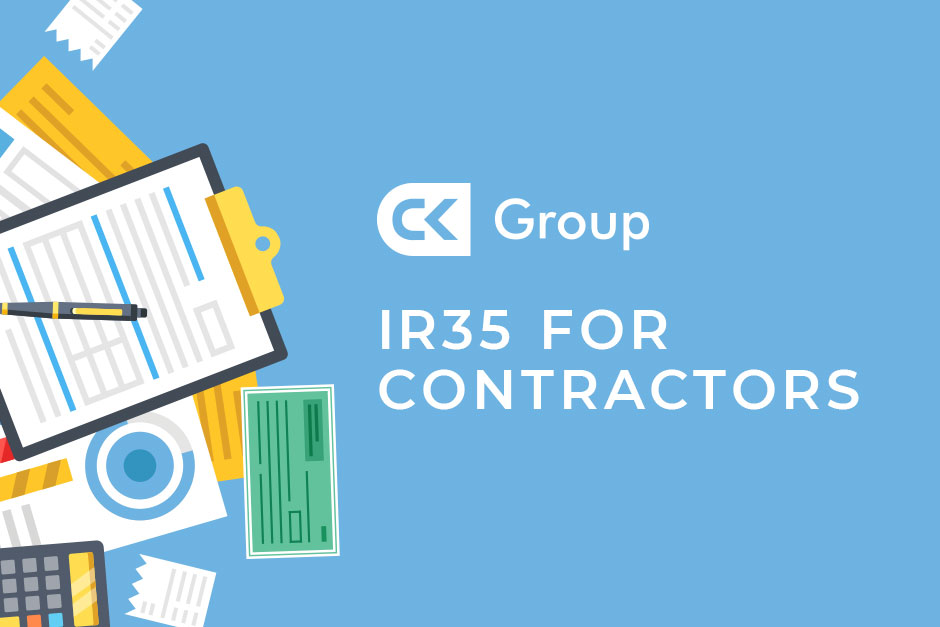What has changed with IR35?
As of 6th April 2021, the responsibility for IR35 assessment shifted from the intermediary (usually the contractor’s own personal services company) to the client.
This also means that private sector clients (or the fee-paying agency acting on their behalf) are now responsible for making the correct deductions for the tax and NIC of their contractors who are assessed as falling within IR35. This has brought the private sector IR35 legislation in line with its public sector equivalent.
How is IR35 status determined for contractors?
HMRC has created a tool called ‘Check Employment Status for Tax’ (CEST), where clients can answer a series of questions to assess their contractors’ IR35 status.
It is not mandatory for client companies to use CEST, however HMRC have stated that they will stand by the results determined by the tool unless any checks reveal that inaccurate information has been submitted. It is therefore critical that proper and thorough assessments of each assignment are made, rather than attempting to apply a single, all-encompassing status determination to all contractors.
What do contractors need to know?
The shift in IR35 assessment responsibility means that client companies now need to ask their contractors questions in order to make accurate judgements. Contractors therefore need to be prepared to provide information relating to the ownership and management of their personal service companies, including:
- How many other clients the company works with
- The types of insurances held by the company
- UTRs and VAT numbers
Contractors should note that it is permissible under the data protection law for client companies to request this information for the purpose of staying compliant with tax legislation, provided that they process the information in accordance with the data protection law.
The assessment could result in a change of status for contractors that places them inside IR35. This means that deductions for PAYE and National Insurance will be taken by the fee-payer before the contractor is paid. Some client companies may offer to increase their payments to compensate for this, and others may choose to offer contractors employee status or a PAYE contract with the company. Client companies are not obligated to offer any compensation or alternative business arrangements however, and the contractor should therefore decide what conditions they would find acceptable if they are deemed to be working inside IR35.
It is an offense to avoid paying the taxes resulting from their assessed status, and contractors should be highly cautious if engaging with agencies or umbrella companies operating in any of the following ways:
- Disregarding the client’s decision regarding the contractor’s IR35 status
- Offering to pay contractors a large percentage of their remuneration ‘tax-free’
- Offering loans, offshore arrangements or other proposed solutions to paying taxes
- Offering to present contracts so as to make the contractors appear outside IR35
All of the above factors could be deemed as disguised remuneration tax avoidance by HMRC.
Finally, contractors who find themselves assessed inside IR35 should note that while they will be liable for paying employee tax, this does not mean they are entitled to employee benefits. Paying employee tax currently does not equate to full employee status. The government is reviewing this, and looking to bring employee tax status in line with full employee status.
Are there any exemptions to the legislation?
The changes to IR35 only affect medium to large private sector companies. Small employers are exempt from the legislation, in which case it remains the responsibility of contractors to assess their own status. As per the Companies Act 2006, two of the following criteria must be met in a particular year in order for a company to be classed as ‘small’:
- The company’s turnover must not be more than £10.2m
- The company’s balance sheet must not be more than £5.1m
- The company must have fewer than 50 employees
Anti-avoidance rules have been introduced to prevent organisations from restructuring in order to avoid the legislation.
Medium-to-large companies may attempt to pass responsibility for IR35 assessment from themselves to the fee-payer (or agency), if a fee-payer is involved in the supply chain. However, it is unlikely that fee-payers in the supply chain will be willing to accept the resulting liabilities.
Regardless of whether the client or the fee-payer assumes responsibility for the IR35 determination, the decision must be cascaded throughout the supply chain so that all parties are aware of their obligations. This provides contractors with the opportunity to discuss their IR35 status as assessed by the client, and dispute it if necessary. Disputes are a client-led process of consultation.
What should contractors do?
In the first instance, all contractors should be taking advice from their accountants with regard to their IR35 status. If you find from this that you need to receive payment through an external company, CK Group can help.
We have our own inhouse payroll system and pay our contractors without any of the charges incurred through using an umbrella company. We can also have contracts set up in as little as 24 hours, and offer ongoing management of these contracts.
Need more information?
To find out more, contact CK Group’s Director Liam O’Connell.
Watch the IR35 Q&A video with Chris Humphreys
